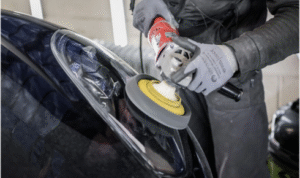
Uphire
Discover how Uphire’s flexible cherry picker hire services are revolutionizing construction site operations by significantly reducing downtime. With a diverse fleet of equipment and expert support, Uphire ensures efficient and safe access to heights, enhancing productivity and project timelines.
Introduction to Uphire’s Cherry Picker Hire Services
Uphire is proud to introduce its comprehensive cherry picker hire services, designed to meet a wide range of aerial access needs for various industries. Our cherry pickers are versatile machines that provide safe and efficient access to heights, making them ideal for tasks such as maintenance, construction, and event setup. With a focus on safety and reliability, Uphire ensures that all cherry pickers in our fleet are well-maintained and regularly inspected to meet industry standards. We offer a diverse selection of cherry pickers, including both electric and diesel models, to cater to different project requirements.
At Uphire, we strive to provide a seamless hiring experience for our customers, offering flexible rental options and competitive rates for cherry picker hire services. Our team of experienced professionals is dedicated to assisting clients in selecting the most suitable cherry picker for their specific needs, ensuring that projects are completed efficiently and safely. With Uphire’s cherry picker hire services, customers can benefit from cutting-edge equipment, expert advice, and exceptional customer service to meet their access requirements with ease and confidence.
Uphire also offers an extensive range of equipment, including scissor lifts and forklifts, across Sydney, Newcastle, and Brisbane. With 24/7 support and EWP training, customers receive reliable, tailored solutions featuring advanced safety measures, ensuring compliance and efficiency on high-profile projects.
Understanding the Impact of Downtime on Construction Sites
Downtime on construction sites can have significant impacts on project timelines, budgets, and overall productivity. When construction activities are halted due to downtime, it can result in delays that ripple through the entire project schedule. Delays in one phase of construction can create a domino effect, pushing back subsequent tasks and ultimately extending the overall project timeline. This can lead to increased costs as labor and equipment may need to be retained for longer periods, subcontractors may have to be rescheduled, and deadlines for project completion may be missed. Additionally, downtime can disrupt the coordination and synchronization of various trades and activities on the construction site, leading to inefficiencies and potential conflicts between different teams.
Furthermore, downtime can also impact worker morale and motivation. When construction activities come to a halt, workers may become frustrated and demotivated, affecting their productivity and the quality of work being done. Extended periods of downtime can lead to decreased job satisfaction, increased stress levels, and a higher likelihood of accidents or mistakes on the construction site. It is essential for construction managers to proactively identify the causes of downtime, implement strategies to minimize its occurrence, and effectively manage any disruptions to ensure that projects are completed on time, within budget, and with high quality standards.
The Benefits of Using Cherry Pickers for Construction Projects
Cherry pickers, also known as aerial work platforms, offer a myriad of benefits for construction projects. One of the key advantages is the increased safety they provide to workers. By allowing workers to access elevated areas without the need for ladders or scaffolding, cherry pickers reduce the risk of falls and other accidents on the construction site. This not only protects the well-being of workers but also minimizes potential delays and costs associated with injuries. Additionally, cherry pickers enhance efficiency and productivity by enabling workers to reach heights quickly and easily. This saves time and labor, leading to faster project completion and cost savings for the construction company.
Another benefit of using cherry pickers in construction projects is their versatility. These machines come in various sizes and configurations, making them suitable for a wide range of tasks, from painting and window installation to electrical work and roof repairs. Their ability to maneuver in tight spaces and reach heights of up to 100 feet makes them ideal for projects of all sizes and complexities. Furthermore, cherry pickers can be used both indoors and outdoors, offering flexibility to construction teams working in different environments. Overall, the use of cherry pickers in construction projects not only improves safety and efficiency but also enhances the quality and speed of work, making them an invaluable tool in the construction industry.
How Uphire’s Flexible Rental Options Can Minimize Downtime
Uphire’s flexible rental options offer a valuable solution to minimizing downtime for businesses in need of equipment. By providing short-term rentals for construction machinery, access equipment, and other specialized tools, Uphire allows businesses to access the equipment they require only for the duration they need it. This flexibility is particularly beneficial for businesses with fluctuating workloads or seasonal demands, as they can scale their equipment needs up or down accordingly. With Uphire’s flexible rental options, businesses can avoid the costs associated with owning and maintaining equipment that may not be in constant use, reducing their overall operational expenses and improving their bottom line.
Moreover, Uphire’s flexible rental options can help businesses respond quickly to unexpected breakdowns or emergencies. In the event of equipment failure, businesses can quickly rent a replacement from Uphire to minimize downtime and keep their projects on track. This quick and convenient solution ensures that businesses can continue their operations without significant interruptions, maintaining productivity and meeting project deadlines. By having access to a wide range of equipment on short notice, businesses can be prepared for any unforeseen circumstances, demonstrating the value of Uphire’s flexible rental options in reducing downtime and ensuring operational efficiency.
Uphire cherry picker hire offers businesses the versatility to select high-quality equipment suited to specific needs. This rental service supports businesses across Sydney, Newcastle, and Brisbane, ensuring projects proceed seamlessly and align with safety and WHS standards while leveraging smart technology for enhanced operational performance.
Case Studies: Successful Implementation of Cherry Pickers in Construction
Case studies have demonstrated the successful implementation of cherry pickers in construction projects, showcasing their efficiency and safety benefits. One case study involved a high-rise building project where cherry pickers were used to access difficult-to-reach areas for window cleaning and maintenance. The cherry pickers not only provided a safe and stable platform for workers to carry out their tasks but also significantly reduced the time required to complete the work. This resulted in cost savings for the project as well as improved productivity. The successful implementation of cherry pickers in this case study highlighted the importance of using specialized equipment to enhance efficiency and safety in construction projects.
In another case study, cherry pickers were utilized in a bridge construction project to facilitate the installation of structural elements at varying heights. The cherry pickers allowed workers to access different levels of the bridge quickly and safely, reducing the risk of accidents and injuries. The flexibility of cherry pickers in adjusting to different heights and angles made them an ideal choice for this project, where traditional methods would have been time-consuming and risky. This successful implementation of cherry pickers in bridge construction showcased their versatility and adaptability in enhancing construction processes. Overall, these case studies emphasize the significant impact cherry pickers can have on improving efficiency and safety in construction projects.
Safety Considerations When Using Cherry Pickers on Site
Safety considerations when using cherry pickers on site are crucial to prevent accidents and ensure the well-being of operators and other workers. Before operating a cherry picker, it is essential to conduct a thorough inspection of the equipment to ensure that it is in good working condition. This includes checking for any damage, leaks, or malfunctioning parts that could pose a safety hazard. Additionally, operators should also ensure that the cherry picker is set up on stable ground to prevent tipping over during operation. It is important to follow the manufacturer’s guidelines for safe operation, including weight limits, maximum height restrictions, and proper use of safety harnesses and other personal protective equipment.
Furthermore, proper training is essential for anyone operating a cherry picker on site. Operators should be trained on how to safely use the equipment, including how to maneuver it efficiently and how to respond to emergency situations. It is also important to have a designated spotter on the ground to assist the operator and communicate effectively during operation. Clear communication between the operator and the spotter is crucial in ensuring the safe movement of the cherry picker and avoiding potential accidents. By following these safety considerations and guidelines, the risks associated with using cherry pickers on site can be minimized, creating a safer work environment for everyone involved.
Training and Certification Requirements for Cherry Picker Operators
Training and certification requirements for cherry picker operators are essential to ensure the safety and efficiency of operations in industrial settings. Cherry picker operators must undergo comprehensive training to learn how to operate the equipment safely and effectively. Training programs typically cover topics such as equipment operation, safety protocols, load capacity limits, inspection procedures, and emergency response measures. Operators are also trained on proper positioning and maneuvering techniques to navigate the cherry picker in tight spaces or at significant heights. Additionally, certification programs often include hands-on practical assessments to evaluate the operator’s skills and knowledge before issuing a certification.
To become a certified cherry picker operator, individuals must typically complete a formal training course offered by accredited training providers. These courses may vary in duration and content depending on the specific requirements of the industry or workplace. Upon successful completion of the training program, operators are required to pass a written exam and a practical assessment to demonstrate their competence in operating the cherry picker safely. Certification is often valid for a specified period, after which operators may need to undergo refresher training or re-certification to ensure they are up-to-date with the latest safety standards and best practices. By meeting these training and certification requirements, cherry picker operators can contribute to a safer work environment and reduce the risk of accidents or injuries while operating this specialized equipment.
Maintenance Tips to Ensure Cherry Pickers Perform Efficiently
Regular maintenance is crucial to ensure cherry pickers perform efficiently and safely. One important tip is to conduct daily pre-shift inspections to check for any signs of wear or damage. This includes examining hydraulic hoses, electrical connections, and structural components for any issues that may affect the machine’s performance. Keeping the cherry picker clean is also essential to prevent debris from accumulating and causing malfunctions. Regularly cleaning the platform, controls, and engine area can help extend the lifespan of the equipment and ensure optimal performance.
In addition to daily inspections, it is important to schedule routine maintenance tasks such as lubricating moving parts, checking fluid levels, and inspecting the battery and charger for any signs of wear. Following the manufacturer’s recommended maintenance schedule is key to preventing breakdowns and ensuring the cherry picker operates efficiently. It is also important to train operators on proper operation and maintenance procedures to help identify any potential issues early on. By staying proactive and attentive to maintenance needs, cherry picker operators can maximize the performance and longevity of their equipment.
Cost Analysis: Comparing Cherry Picker Hire vs. Purchasing Equipment
Cost analysis is crucial when determining whether to hire a cherry picker or purchase equipment. When comparing cherry picker hire vs. purchasing, several factors must be considered. Hiring a cherry picker may seem more cost-effective initially as it involves lower upfront costs, no maintenance fees, and the flexibility to choose different types of equipment based on specific project needs. However, the long-term costs of hiring can add up over time, especially for projects requiring prolonged use of the cherry picker. Additionally, there may be additional charges for delivery, operator fees, and damage costs that need to be factored into the overall cost analysis.
On the other hand, purchasing a cherry picker involves higher upfront costs but may prove to be more cost-effective in the long run for businesses with frequent or long-term need for the equipment. Owning a cherry picker provides the advantage of having the equipment readily available whenever needed without the constraints of rental agreements or availability issues. Maintenance costs and repairs are the responsibility of the owner, but these expenses can be budgeted for and potentially lower than the cumulative costs of renting over an extended period. Ultimately, the decision between hiring and purchasing should be based on a comprehensive cost analysis that considers both short-term and long-term financial implications.
Future Trends in Construction Equipment Rental Industry
The construction equipment rental industry is poised to experience several significant future trends that will shape the way businesses operate in this sector. One key trend is the increasing adoption of advanced technology in rental equipment. Construction equipment manufacturers are incorporating telematics, IoT sensors, and machine learning algorithms into their products to enhance equipment performance, tracking, and monitoring. This technology allows rental companies to remotely monitor equipment usage, schedule maintenance proactively, and optimize fleet management, leading to improved operational efficiency and cost savings. As these technologies become more mainstream and affordable, we can expect to see a widespread integration of smart equipment in the rental industry.
Another future trend in the construction equipment rental industry is the growing emphasis on sustainability and environmental responsibility. With the construction sector being a significant contributor to carbon emissions and environmental degradation, there is a shift towards greener practices and eco-friendly equipment solutions. Rental companies are increasingly offering electric, hybrid, and low-emission equipment options to meet the rising demand for sustainable construction practices. Furthermore, there is a focus on recycling and reusing materials to reduce waste and promote a circular economy within the industry. As environmental regulations become stricter and clients prioritize sustainability in their projects, construction equipment rental companies will need to adapt by offering more eco-conscious solutions to remain competitive in the market.





